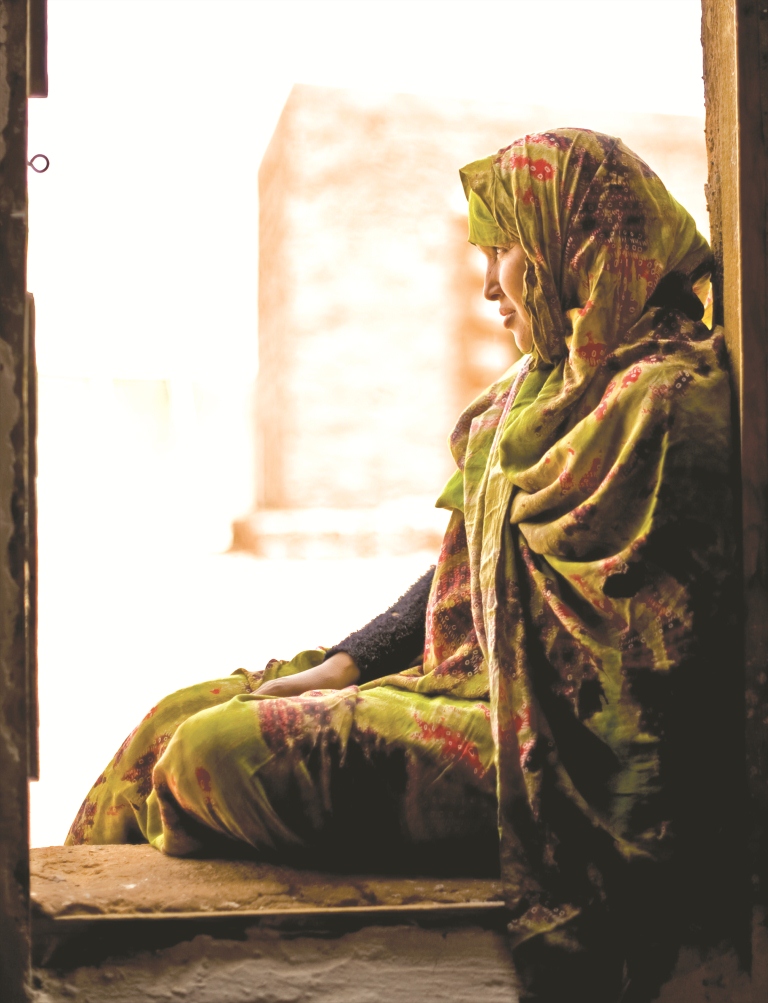Isolated from the world and within their own state, this has been the plight of the Saharawi people living in the refugee camps of Western Algeria for the last 41 years. They face human rights injustice, but unlike other refugees, it is in their own land.
The Polisario movement, the voice of the Saharawi ethnic group, says the territory reported to be illegally occupied by Morocco, belongs to the Saharawi people.
For years following a guerrilla war, they have tried and failed to claim ownership of the land from the Moroccan government. Now, according to the United Nations, they live in mud brick houses and tents in the harsh desert conditions of Tindouf Province, Western Algeria.
They have been locked in an armed struggle for liberation.
At the forefront of the movement are the Saharawi women who have increased their traditional role in the fight not only to reclaim their territory but to also salvage their self-determination as a people.
According to Catherine Constantinides, a human rights activist and executive director of Miss Earth South Africa, the power structure is unlike any other on the globe, particularly in Muslim culture.
“Women have a strong hold in the camps; they double as caregivers as well as liberation fighters. They also invest heavily in themselves educating one another and learning various skills. They exert the power there and the men respect this because they hold the camps together.”
Constantinides, who has dedicated her efforts to bringing to the fore their plight, emphasizes the world cannot fathom the dire conditions faced by the Saharawi people “until you see it”.
“The Saharawi people have less than nothing,” she says.
On one of her many visits to the region, Constantinides witnessed the dehumanizing of the people as they received food packets dropped by aeroplanes and water delivered in trucks.
The men cannot provide for their families so their children look to the skies for scraps of food.
This is just one illustration of the gap between humanity and policy regulations that leaves the Saharawis perennially stateless.
Moreover, there are no adequate health facilities for them.
“Child mortality is at its highest in Tindouf as women are forced to give birth in their mud houses or tents,” explains Constantinides.
“It’s devastating because children bring that spark of hope within that unfortunate situation.”
United Nations Secretary-General, Ban Ki-moon, has since visited the refugee camps in an effort to reignite negotiations in the region and to end the dispute and bring liberation to the Saharawi people. During his visit, he said he “would spare no effort towards a just and meaningful solution” for the people in Western Algeria.
These are the kind of efforts activists like Constantinides want to see in the fight against the apparent global neglect of refugees.
“We have to find better ways of dealing with the crisis.”
One example that Constantinides refers to is the naturalization process she witnessed earlier this year in Virginia, America, on the fourth of July.
“This was an example of how in time systems can work if applied to crises to give people dignity.”
“We have to bring the concept back of supporting each other instead of building walls,” she sighs.
Until such time, the Saharawi people will continue fighting for their statehood, led by the women who Constantinides says will never give up, come hell or high water.
